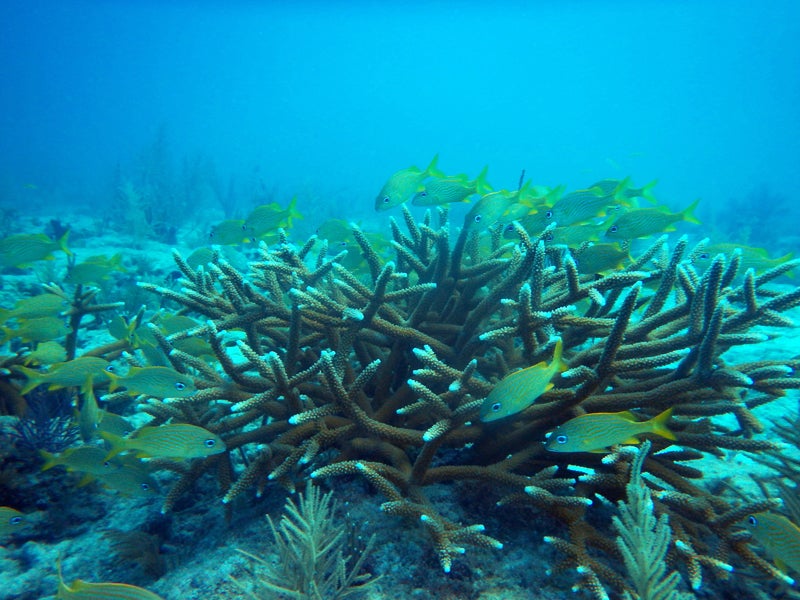Earthjustice Protects Rare Florida Corals from Project That’s ‘Plain Lunacy’
The U.S. Army Corps of Engineers will pause a massive dredging project that threatens endangered corals near Florida’s Ft. Lauderdale.

This page was published 9 years ago. Find the latest on Earthjustice’s work.
Couldn’t we all use a bit of good news right about now? Well, here you go: Earthjustice just won a major environmental victory in a South Florida legal case to protect a portion of the only near-shore coral reef in the continental United States.
The reef sits off the coast of Fort Lauderdale, Florida, where the U.S. Army Corps of Engineers is planning to deepen a port channel to make way for ever-larger ships due to the expanded Panama Canal. Last week, the corps agreed to hit “pause” on this dredging project because of a lawsuit we filed on behalf of Miami Waterkeeper, the Center for Biological Diversity, the Florida Wildlife Federation and the Diving Equipment and Marketing Association. In response, we agreed to put our lawsuit on hold while the corps conducts important new environmental studies.
In our lawsuit—filed under the Endangered Species Act and the National Environmental Policy Act—we presented devastating evidence that the corps had ignored in its environmental analyses for the dredging project at Fort Lauderdale’s Port Everglades. That evidence was found on the ocean floor about 30 miles south along the coast, at PortMiami.
Last year, a similar Army corps dredging operation at PortMiami proved disastrous for the delicate corals there. The corps had projected that the impact of dredging on the coral reef would be minimal, but sadly, that was not the case.
Dredging stirred up fine-grained sediment, which smothered tens of thousands of coral colonies and more than 250 acres of reef designated as critical habitat for endangered staghorn corals. The National Marine Fisheries Service later surveyed the wrecked reef and concluded that 95 percent of the reef it assessed is no longer suitable habitat for corals. The service reported that some of the damaged reef will never recover naturally.
We felt that a repeat environmental disaster was in the making, since the corps was using the same flawed environmental assumptions it had used in Miami for the Fort Lauderdale dredging project. We didn’t want to see the same tragedy occur once again.
“Intentionally endangering the Florida reef tract a second time is plain lunacy,” ocean explorer Jacques Cousteau’s grandson, Phillippe Cousteau Jr., wrote in a South Florida Sun-Sentinel column. “We should be doing the reasonable thing—nurturing and protecting it and allowing it to recover to its full glory. We cannot further harm this resource or we may lose it altogether. This is not hyperbole, it is scientific fact.”
The devastating coral damage discovered after the PortMiami dredging gave us all pause, and we believe it is a mistake the corps can learn from. According to the law, a proper environmental analysis must be done before the government spends further taxpayer dollars on this potentially devastating project. Part of the corps’ new analysis will include measuring the possible impacts of dredging on a new coral species found near Ft. Lauderdale that was recently added to the federal endangered species list.
As Phillipe Cousteau writes, “Our coral reefs do so much for us. They provide critical habitat for fish, they protect coastal communities from storm damage, support vibrant fishing and diving, and they are a draw for one of the state’s biggest industries: tourism. It’s time for us to stand up for them and hold our government accountable.”
Port Everglades dredging is expected to remain on hold while the corps conducts the new environmental analyses. We will keep you updated on our fight to protect Florida’s corals.
Earthjustice’s Oceans Program uses the power of the law to safeguard imperiled marine life, reform fisheries management, stop the expansion of offshore oil and gas drilling, and increase the resiliency of ocean ecosystems to climate change.